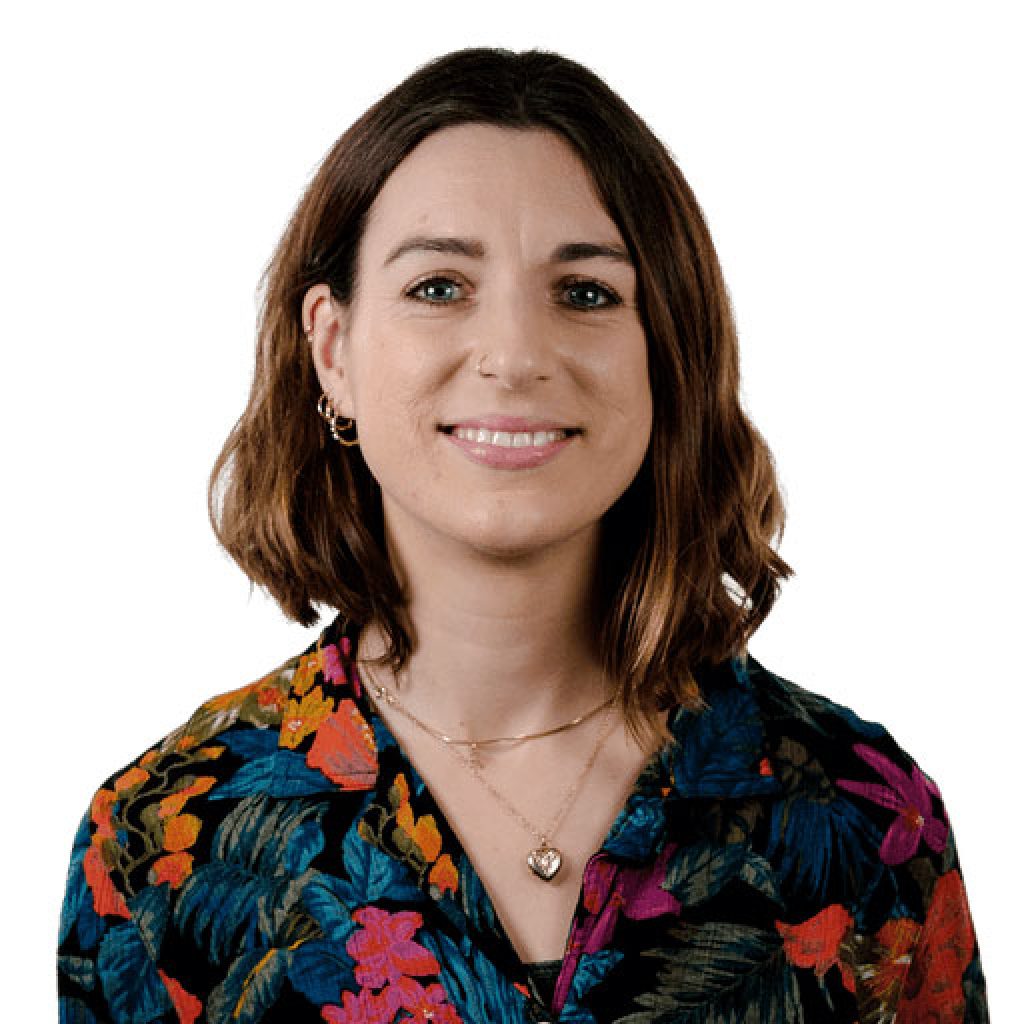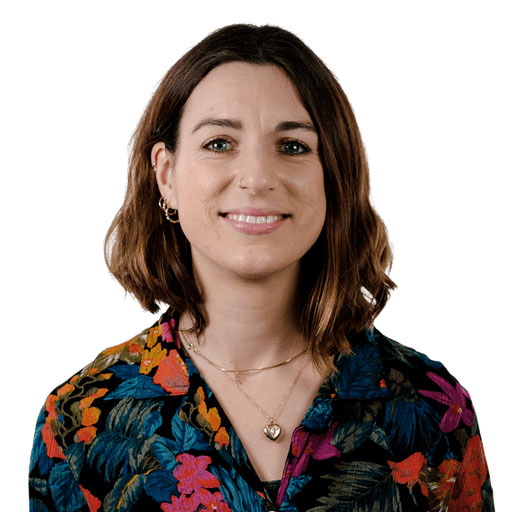Do you need your morning cup of joe before you can even think of getting on with your day? You’re not alone – almost three-quarters of Americans1 drink coffee every day. With our busy, modern lives, many of us rely on coffee to help us stay alert, but how does coffee do that?
Regular coffee contains caffeine, which is the most widely consumed psychoactive stimulant2 across the world. Coffee is caffeine’s most common source, although it’s found in over 60 other plants3, like tea and cacao beans, and it’s often added to soda, energy drinks, and some medications.
While caffeine can help stave off fatigue during the day, it could also disrupt our sleep at night.
How Does Caffeine Keep You Awake?
Once consumed, caffeine travels to the gut, where it’s quickly absorbed into the bloodstream4, making its way around the body and to the brain. Absorption time can be delayed depending on the food that’s in your gut, which is why you may feel the effects of caffeine faster when you drink coffee on an empty stomach.
So, what are these effects?
Caffeine is a central nervous system stimulant, which mainly acts on adenosine receptors in our brain.2 Adenosine is a neurotransmitter5 that helps regulate our sleep-wake cycle – it’s released throughout the day to help make you feel sleepy and keep you asleep during the night.
When caffeine binds to adenosine receptors, it essentially blocks the effects of adenosine that make you feel tired.4
Caffeine and Sleep
A 2023 systematic review of 24 current studies6 reveals that caffeine consumption can cause you to fall asleep nine minutes later than usual, lose 45 minutes of total sleep, and reduce sleep efficiency by 7 percent. Caffeine can also increase time spent in light sleep by 6.1 minutes, and decrease time spent in deep sleep by 11.4 minutes.6
We typically spend 25 percent of the night in deep sleep7, so a person who sleeps eight hours will require two hours of deep sleep. This sleep stage is important for feeling rested, and your body uses it to strengthen the immune system and repair any injuries8.
Feeling fatigued due to caffeine consumption can turn into a problematic cycle9 if you end up drinking more coffee to counteract the sleepiness, as this can disrupt your next night’s sleep, and so on.
Does Caffeine Cause Insomnia?
Signs of insomnia include poor quality sleep, trouble falling asleep or staying asleep, and not getting enough sleep. Research looking at caffeine intake in healthy individuals10 has shown that it can cause difficulty falling asleep, increased nighttime awakenings, decreased total sleep time, and daytime tiredness. Caffeine can also exacerbate symptoms in people who are already having issues sleeping.10
Related: Best Mattress for Insomnia
Does Caffeine Make Some People Sleepy?
When drinking coffee first thing in the morning, the caffeine may initially make you feel more alert. It does this by binding to adenosine receptors, which prevents the neurotransmitter from making you feel sleepy.5
Your body produces adenosine throughout the day11 to regulate the sleep-wake cycle, and it wears off overnight to help wake us up. However, caffeine only temporarily blocks the effects of adenosine, which means when your coffee wears off, you may suddenly feel tired again. Plus, the more often you drink coffee, the less you may feel the effects of the caffeine in it.11
What Time Should I Stop Drinking Caffeine?
Research shows that the half-life of caffeine varies among healthy individuals, ranging from two to 10 hours, which is the time it takes for your body to eliminate half the amount of caffeine consumed.9 Half-life can also be affected by factors such as age, ethnicity, taking antidepressants or oral contraceptives, and smoking or drinking alcohol.6 This means that some people can tolerate drinking caffeine closer to bedtime than others, so it’s impossible to give a definitive answer on the best time to stop drinking caffeine.
However, as a general rule, experts recommend not drinking caffeine within eight hours of going to bed12 to avoid sleep disruption. For someone whose bedtime is 10:00 p.m., this would mean avoiding caffeine after 2:00 p.m.
You can use this chart as a starting point and adjust your caffeine intake accordingly.
| Bedtime | When to Stop Drinking Caffeine |
|---|---|
| 8:00 p.m. | 12:00 p.m. |
| 9:00 p.m. | 1:00 p.m. |
| 10:00 p.m. | 2:00 p.m. |
| 11:00 p.m. | 3:00 p.m. |
| 12:00 a.m. (midnight) | 4:00 p.m. |
How Much Caffeine Is Safe to Drink Per Day?
According to the Mayo Clinic13, the majority of healthy adults should be safe consuming up to 400 milligrams of caffeine per day. This amounts to around four 8-ounce cups of brewed coffee, eight mugs of black tea, or 10 cans of soda, although the amount of caffeine in individual beverages can vary.
Different types of tea contain varying amounts of caffeine14, and the longer it’s brewed, the more caffeine it will contain. However, caffeine tolerance between individuals can vary, so 400 milligrams may be too much for some people.
Experts advise that children do not consume caffeine at all, while pregnant women (or those trying to become pregnant) should have no more than 200 milligrams per day.13 However, it’s best to discuss your individual circumstances with your doctor.
How To Wake Up Without Caffeine
If you’re concerned about how your caffeine consumption affects your sleep, you can try reducing your intake and looking for alternative ways of feeling more energized.
- Consistent sleep routine – Having a structured sleep schedule can improve the quantity and quality of your sleep15, which can help you feel more well-rested.
- Get outside – Exposing yourself to sunlight as soon as you wake up can help you feel alert16 by regulating your body’s internal clock (or circadian rhythm). Plus, increasing your amount of daylight exposure can improve sleep quality and duration17.
- Exercise – Research shows that doing regular physical and mind-body exercise (e.g. yoga) can boost sleep quality18, which could help curb daytime sleepiness.
- Power naps – On those days when you’re feeling so tired you can’t function, it might be best to give in and take a power nap, rather than reaching for the java. A 15 to 20-minute daytime nap19 can leave you feeling more alert for up to two hours, without disrupting your nighttime sleep.
- Nutrition and hydration – Some studies20 suggest that sleep quality can be improved by eating more fruit and foods containing tryptophan, melatonin, and antioxidants. Even mild dehydration can cause daytime fatigue21, so drink plenty of water throughout the day.
Caffeine FAQs
How does caffeine affect your sleep?
Caffeine can make you feel more alert during the daytime, but if your body is still feeling the effects as night falls, you could experience trouble falling asleep and staying asleep, decreased sleep quality, and reduced sleep duration.6
Relying on caffeine to mitigate the symptoms of sleep deprivation can make the problem worse, as excess caffeine consumption can then continue to disrupt your sleep, creating a frustrating cycle.9 Also, experts stress that caffeine cannot replace restful sleep22, and that it’s ineffective in cases of severe sleep loss.
Is it bad to sleep after drinking caffeine?
In some cases, taking a quick nap right after consuming caffeine may boost its effects. This concept is called a “coffee nap.”
Caffeine takes about 15 minutes23 to start kicking in. The idea behind a coffee nap is that you’d immediately take a 15-minute nap after you finish your coffee. Then, once you wake up, you should start feeling more alert. According to a pilot study, drinking coffee immediately before taking a power nap can improve focus and reduce fatigue24.
How long should you avoid caffeine before bed?
This can vary based on a person’s metabolism, the half-life of the caffeine product, and how much you’ve consumed. However, a guideline recommended by experts is to avoid caffeine within eight hours of your usual bedtime.12

Lisa Bowman
Writer
About Author
Lisa is a content writer for Sleep Advisor, which combines two of her greatest passions – writing and sleeping. She can also be found writing about fitness, sustainability and vegan food.
Combination Sleeper
References:
- Ridder, M. “How frequently do you drink coffee?” Statista. 2024.
- Evans, Justin., Richards, John R., Battisti, Amanda S. “Caffeine.” StatPearls. Last modified June 8, 2023.
- Cappelletti, Simone., et al. “Caffeine: Cognitive and Physical Performance Enhancer or Psychoactive Drug?”. Current Neuropharmacology. 2015.
- “Caffeine”. Harvard T.H. Chan School of Public Health. Last modified July 2020.
- Reichert, Carolin Franziska., Deboer, Tom., Landolt, Hans‐Peter. “Adenosine, caffeine, and sleep–wake regulation: state of the science and perspectives”. Journal of Sleep Research. 2022.
- Gardiner, Carissa., et al. “The effect of caffeine on subsequent sleep: A systematic review and meta-analysis.” Sleep Medicine Reviews. 2023.
- Patel, Aakash L., et al. “Physiology, Sleep Stages.” StatPeals. Last modified January 26, 2024.
- “Sleep”. Cleveland Clinic. Last modified June 19, 2023.
- O’Callaghan, Frances., Muurlink, Olav., Reid, Natasha. “Effects of caffeine on sleep quality and daytime functioning”. Risk Management and Healthcare Policy. 2018.
- Chaudhary, Ninad S., et al. “Caffeine consumption, insomnia, and sleep duration: Results from a nationally representative sample”. Nutrition. 2016.
- “Good Sleep Recipe”. Yale School of Medicine. Webpage accessed April 5, 2024.
- “Healthy Sleep Habits”. National Heart, Lung and Blood Institute. Last modified March 24, 2022.
- “Caffeine: How much is too much?” Mayo Clinic. Last modified March 19, 2022.
- “Caffeine content for coffee, tea, soda, and more.” Mayo Clinic. Last modified April 26, 2022.
- MacMahon, William R., et al. “The impact of structured sleep schedules prior to an in-laboratory study: Individual differences in sleep and circadian timing”. PLoS One. 2020.
- “4 Therapeutic Benefits of Getting Outside”. UNC Healthcare. 2023.
- Boubekri, Mohamed., et al. “The Impact of Optimized Daylight and Views on the Sleep Duration and Cognitive Performance of Office Workers”. International Journal of Environmental Research and Public Health. 2020.
- Xie, Yi., et al. “Effects of Exercise on Sleep Quality and Insomnia in Adults: A Systematic Review and Meta-Analysis of Randomized Controlled Trials”. Frontiers in Psychiatry. 2021.
- “NIOSH Training for Nurses on Shift Work and Long Work Hours”. Centers for Disease Control and Prevention. Last modified March 31, 2020.
- Alruwaili, Nawaf W., et al. “The effect of nutrition and physical activity on sleep quality among adults: a scoping review”. Sleep Science and Practice. 2023.
- “Dehydration”. Cleveland Clinic. Last modified June 5, 2023.
- Urry, Emily., Landolt, Hans-Peter. “Adenosine, Caffeine, and Performance: From Cognitive Neuroscience of Sleep to Sleep Pharmacogenetics”. Sleep, Neuronal Plasticity and Brain Function. 2014.
- “How To Quit Caffeine Without a Headache”. Cleveland Clinic. 2023.
- Centofanti, Stephanie., et al. “A pilot study investigating the impact of a caffeine-nap on alertness during a simulated night shift”. Chronobiology International. 2020.
